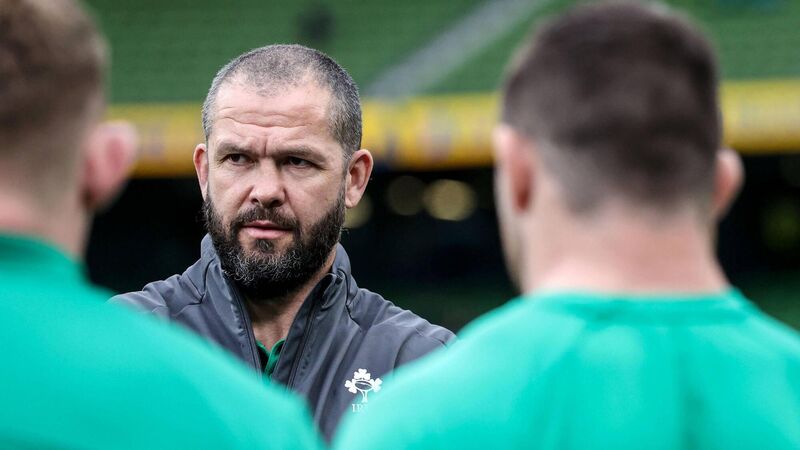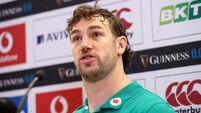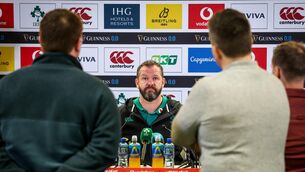Donal Lenihan: The day Andy Farrell emerged from Joe Schmidt's shadow

AURA: Andy Farrell speaks to the Irish players ahead of last Saturday's test match. Picture: Dan Sheridan, Inpho
For Andy Farrell, the wheel has finally come full circle. Now two years in the job as Ireland head coach, the restrictions imposed by the global pandemic have meant he’s been forced to operate under the radar.
All press conferences are conducted by zoom, there is little or no public interaction with a very personable man whose strength of personality and sheer presence has been a major factor throughout a brilliant professional career in rugby league and union, both as a player and coach.













